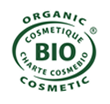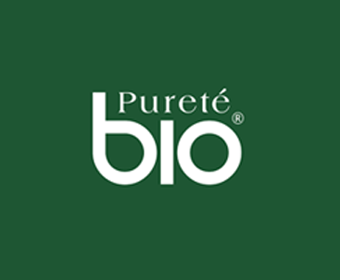Our Labels
Products that claim to be ‘natural’ or ‘free-from’ certain toxic substances are often unable to make good that claim, because the use of these popular marketing terms is not regulated. Many consumers incorrectly assume that the products they use contain exclusively natural ingredients that have been minimally processed, with no chemicals or artificial aromatics. Only products that have been certified by an independent authority are reliable when they make claims of this kind. Pureté Bio is committed to substantiating its claims by the use of high-quality labels with a very strong list of criteria and strict controls.
-

At Pureté Bio all our cosmetic products are certified by the world’s leading international certification authority: ECOCERT Greenlife (the founder of COSMOS – Cosmetic Organic Standard).
The international ECOCERT & COSMOS labels are the ultimate references for natural and organic cosmetics. This label is based on four key principles.First and foremost, the label focuses on the use of natural products that promote ingredients from organic agriculture and respect biodiversity. The use of petro-chemical ingredients that can be harmful to health, such as parabens, phenoxyethanol, aromatics and synthetic colorants are forbidden. In addition, the products cannot be tested on animals.
The label also encourages the responsible use of natural resources and respect for the environment, including the possible use of recyclable packaging.
The label further guarantees the use of ecologically responsible methods of production that are safe for human society. The importance of developing and integrating ‘green chemistry’ into these methods of production is heavily emphasised.
These guidelines relate to the delivery, creation, production, marketing and monitoring of organic cosmetic products. Finally, the COSMOS organic label indicates that at least 20% of the total ingredients come from organic agriculture and at least 95% of the PPAIs (PPAI= Physically Processed Agro-Ingredient) are of organic origin. It is with pride that we display this much-respected label on our products – because what is good for nature is good for us as well.
-

Cosmebio stands for ‘clean’ cosmetics that respect both man and the environment. In addition to the required minimum percentage of naturally produced organic ingredients, certified organic products form part of a wider ethical approach to cosmetic products as a whole. Green chemistry, transparent communication and respect for the workforce are just a few of the stringent criteria assessed by the Cosmebio label.
The Cosmebio organic label is anchored in European legislation and is administered by Cosmebio, an international sectoral organisation representing more than 400 producers of ecologically responsible cosmetics. The aim of Cosmebio is to promote the production of organic cosmetics, rather than their direct control. This control process is carried out by Ecocert, an independent testing organisation.
Since 1 January 2017, all new cosmetic products launched on the organic market must have been developed in a manner that conforms to the requirements of the COSMOS standard. If the ‘Cosmos Organic’ or ‘Cosmos Natural’ approval logo is added under the Cosmébio label, this means that the product has been developed in compliance with this standard.
-

The EU organic label indicates that the production of a product complies with the strict criteria of organic agriculture, processing and sale.
The term ‘organic’ is legally protected throughout Europe. A product can only carry the ‘organic’ label on condition that the entire production chain – from farmer to shop – has been checked and certified. Organic products are grown in fertile open ground without the use of chemical fertilisers and pesticides. As a result, these products grow in a slower but more natural manner.
Consumers are becoming increasingly interested in organic products. Concerns about food safety and the related health risks, the welfare of animals and the size of our ecological footprint all mean that the demand for organic products continues to rise.
Our ancestors ate a completely organic diet. In their day, modern and conventional agricultural methods making use of genetically modified organisms (GGOs), synthetic fertilisers, pesticides and herbicides simply did not exist. During the past century our diet and the methods of its production have changed dramatically but our body and our genes have remained the same.
Organic products are perhaps a little more expensive, but at the end of the day you are paying a bit more to ensure the health of your children, the welfare of animals, the biodiversity of the planet and a better environment for us all. Scientific research recently carried out at the University of Newcastle has shown that organic crops of fruit, vegetables and cereals contain between 20 and 40% more important anti-oxidants than traditionally cultivated crops. This same research demonstrated that organic crops also contain lower levels of heavy metals such as cadmium (up to 48% lower), harmful pesticides and concentrations of nitrogen!
